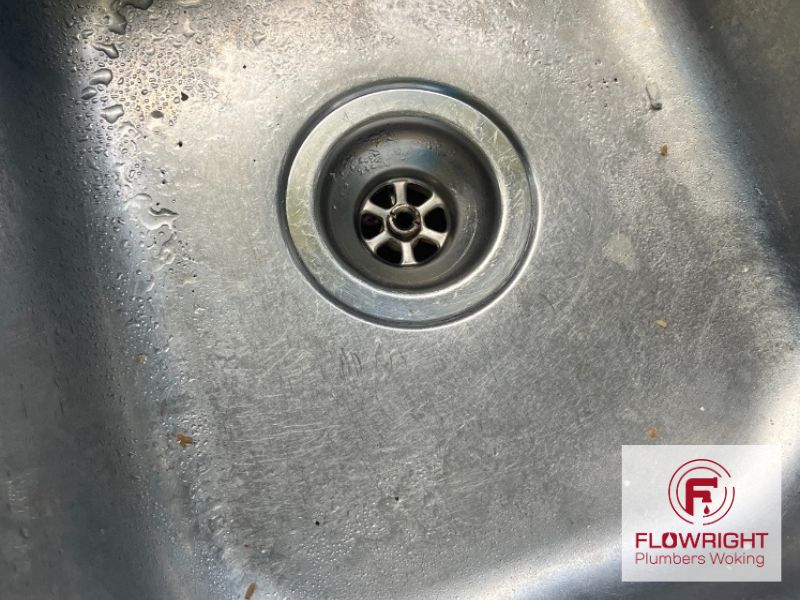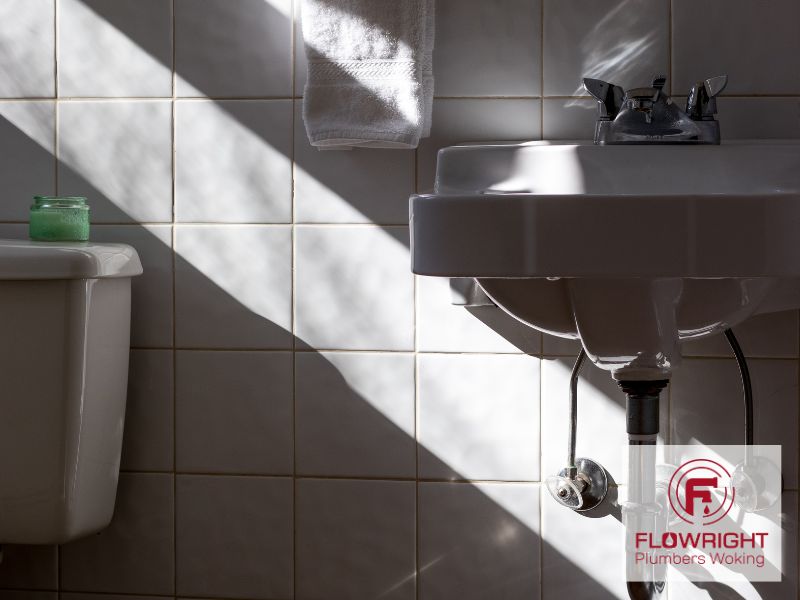Did you know that around 23% of households in the UK experience boiler problems each year? If you find yourself in this situation, there’s no need to panic! Here are some basic tips to potentially fix common issues and avoid expensive repairs.
We will provide you with technical knowledge and instructions to effectively get your heating system back in working order. Solve problems like lack of heat, strange noises, water leaks, boilers not switching on, and cycling on and off.
Get your toolkit ready and let’s get started! By following these steps, you can save both time and money while ensuring comfort for your family.
Lack of heating
If you are experiencing a lack of heat from your boiler, do not panic – there are a few steps you can take before contacting a team of plumbers.
Start by checking your thermostat. A faulty thermostat could be the reason for the lack of heating. Ensure that it is set to the desired temperature and is functioning properly.
Next, inspect any blocked or restricted airflow around your boiler. This could hinder proper heating by preventing air from flowing correctly. Remove any obstructions that may be blocking the vents or air intake areas.
By troubleshooting these common issues, you may be able to save time and money on unnecessary repairs. Always exercise caution when handling your boiler and seek the assistance of a professional if you are unsure or uncomfortable with any do-it-yourself tasks.
Strange Noises
Listen carefully for any unusual sounds coming from your heating system – it may be an indication of something wrong. When strange noises start coming out of your boiler, it’s important to locate the cause and take action quickly.
Begin by inspecting for loose parts such as screws or bolts that may have come undone. These loose items can create vibrations and lead to rattling or banging sounds. Furthermore, listen for hissing or whistling sounds, which may imply a leak in the system or a faulty valve.
To identify the source of the sound, try isolating various parts of the boiler while it’s running to determine if the sound changes or stops. If you’re unsure of how to proceed, it’s always best to consult with a professional technician who can diagnose and repair any problems with your boiler safely and effectively.
Water Leak
When dealing with a water leak in your boiler, it is essential to take a few steps. Firstly, examine the pressure gauge to ensure it is within the recommended range. Secondly, inspect all pipes and valves for any signs of leakage or deterioration. Lastly, if you discover any damaged seals or gaskets, they should be replaced immediately to prevent further leaks.
Please check the pressure gauge.
To make sure your boiler is working correctly, take a quick look at the pressure gauge – it’s similar to checking the fuel gauge on your car to ensure you have enough petrol to reach your destination.
The pressure gauge is an important part of your boiler system that measures the pressure inside. Understanding its accuracy and troubleshooting any problems can help prevent potential issues. Here are some things to keep in mind:
- Pressure Gauge Accuracy:
The pressure gauge should display the current pressure levels accurately. If the gauge reading seems incorrect or changes frequently, it may indicate a faulty gauge that needs to be replaced. - Pressure Gauge Troubleshooting:
Start by checking if the needle on the gauge is within the recommended range for your specific boiler model. If the needle is too high or too low, it could indicate a problem with water pressure or other components. Consult your boiler manual for instructions on how to adjust or reset the pressure gauge if needed.
Regularly monitoring and maintaining appropriate pressure levels using the pressure gauge will help ensure optimal performance and efficiency of your boiler system.
Inspect the Pipes and Valves
Inspecting pipes and valves is a crucial part of ensuring your boiler system is running optimally and avoiding potential problems. Begin by examining for corrosion on pipes and valves. Corrosion can reduce the strength of the system, causing leaks or other malfunctions. Look for any signs of rust or weakened metal. If you spot any corrosion, it might be essential to replace the affected parts. Next, examine for blockages in the pipes and valves. Blockages can limit water flow and cause pressure problems within the boiler system. Examine each pipe and valve carefully, looking for any signs of debris or buildup that could be blocking the flow. If you find a blockage, try removing it using a brush or by flushing out the system with water. By frequently examining your pipes and valves for corrosion and blockages, you can maintain an efficient boiler system and avoid expensive repairs in the future.
Replace faulty seals or gaskets.
If you notice any leaks or unusual sounds coming from your boiler system, it is time to replace those faulty seals or gaskets. Regular maintenance is crucial for the proper functioning of your boiler, and one important aspect is inspecting and replacing seals or gaskets as needed.
Here are some signs and symptoms that indicate the need for seal or gasket replacement:
- Leaks: If you notice water pooling around the boiler or dripping from pipes, it may be due to worn-out seals or gaskets.
- Decreased heating efficiency: Faulty seals or gaskets can cause heat loss, leading to decreased heating performance.
- Unusual noises: Hissing, whistling, or banging sounds may indicate air escaping through damaged seals or gaskets.
- Higher energy bills: Inefficient seals can result in energy wastage, leading to higher utility costs.
By promptly replacing faulty seals or gaskets, you can maintain the efficiency and reliability of your boiler system while avoiding potential breakdowns.
Boiler not working
To troubleshoot a boiler that is not turning on, there are three important factors to consider. Firstly, ensure that the power connection is properly linked and providing electricity. Next, attempt to reset the boiler by turning it off and then on again. Lastly, examine the ignition system for any problems with sparking or gas flow. By following these steps, you can diagnose and potentially resolve the issue of your boiler not turning on.
Check the Power Supply
Double-check that the power supply is functioning correctly before proceeding with any additional troubleshooting. If the power supply is not working properly, your boiler will not be able to start and function correctly. Here are some steps to help you diagnose and address power supply issues:
- Ensure that the circuit breaker for your boiler is not tripped or deactivated.
- Check for any loose connections or frayed wires in the power cable that leads to your boiler.
- If you come across any damaged cables, replace them immediately to ensure safe operation.
- Make sure that the plug is securely inserted into an outlet and not loose or disconnected.
- Test the outlet by plugging in another device to verify if it is receiving power.
- If other devices are working fine, then the issue may be within the boiler itself.
By following these steps, you can identify and potentially resolve any power supply issues that are preventing your boiler from starting.
Reset the Boiler
Once you have checked that the power supply is working properly, you may need to reset the boiler to troubleshoot and address any issues. Depending on the make and model of your boiler, the resetting procedure may differ, so make sure to consult the manufacturer’s manual for specific instructions.
Generally, the process involves turning off the power to the boiler and waiting for a few minutes before turning it back on. This gives the boiler’s internal systems an opportunity to recalibrate and potentially fix any small issues or errors.
When resetting your boiler, remember to take safety precautions such as putting on protective gloves and avoiding any flammable materials in the vicinity. If resetting doesn’t solve the issue, further troubleshooting techniques or professional help may be necessary.
Inspect the Ignition System
Now let’s have a look at the ignition system of your boiler to ensure everything is in order. The ignition system is crucial for proper boiler performance as it ignites the fuel to produce heat.
To effectively maintain and troubleshoot ignition complications, follow these steps:
- Check the pilot light: Make sure that the pilot light is lit and burning steadily.
- Clean the electrodes: Use a soft brush to remove any dirt or debris from the electrodes.
- Inspect wiring connections: Confirm that all wiring connections are secure and free from corrosion.
- Test the transformer: Use a multimeter to check if the transformer is providing sufficient voltage.
- Replace faulty components: If necessary, replace any faulty ignition system components.
By regularly inspecting and maintaining your boiler’s ignition system, you can prevent potential breakdowns and ensure efficient heating throughout your home.
Boiler Cycling On and Off
One interesting statistic to add a level of sophistication to the writing is that boilers cycling on and off frequently can increase energy consumption by up to 30%. This issue, known as boiler cycling, occurs when the boiler turns on and off quickly instead of maintaining a steady temperature. Causes of this problem can include thermostat malfunctions or incorrect thermostat settings.
To tackle this, begin by inspecting your thermostat settings. Make sure it’s set at an appropriate temperature and mode (e.g., heating or hot water). If the settings are accurate, you may need to recalibrate or switch out the thermostat.
Additionally, check other components such as the heat exchanger or pressure relief valve for any potential issues. Regular boiler maintenance and careful thermostat troubleshooting can help prevent regular cycling and enhance energy efficiency in your home.
Frequently Asked Questions
How can I determine if my boiler issue is due to a lack of heating or if it is a more serious problem?
To determine whether your boiler problem is due to a lack of heating or a more serious issue, begin by checking for insufficient heating. This could be caused by problems with the thermostat or low water pressure. However, it is essential to note that certain issues may necessitate the assistance of a professional. Regular maintenance is vital in preventing these problems and ensuring the efficient operation of your boiler. By making regular upkeep a priority, you can detect potential problems early on and avoid expensive repairs in the future.
What are some common causes of unusual sounds coming from a boiler, and how can I resolve them?
Strange noises coming from a boiler can be caused by a variety of issues. One common cause is air trapped in the system, leading to a gurgling or banging sound. To fix this, bleed the radiators to release the air.
Another issue could be a faulty pump or motor, producing grinding or humming noises. In this case, replacing the affected component may be necessary.
Always follow safety guidelines and consult a professional if needed for Boiler Repair DIY: Basic Troubleshooting Tips UK.
Is it safe to carry on using my boiler if I observe a water leak, or should I switch it off right away?
If you notice a water leak in your boiler, switch it off immediately for safety reasons. Using a leaking boiler can result in additional damage and potential dangers.
To troubleshoot heating problems caused by water leaks, identify the source of the leak and carry out any necessary repairs or replacements. It is crucial to prioritize safety and promptly address water leaks to ensure the correct operation of your boiler system.
What are some potential reasons for a boiler not turning on, and are there any simple troubleshooting steps I can take before contacting a professional?
To troubleshoot a boiler that will not turn on, there may be several potential causes. One possible cause could be a faulty thermostat, which may need to be replaced.
Another common issue is power supply problems, so ensure that the power is connected properly.
Before contacting a professional, you can try to address these problems yourself by checking the thermostat settings and verifying the power supply connections.
If these basic steps do not resolve the problem, it is advisable to seek assistance from a professional.
Why does my boiler keep cycling on and off repeatedly, and how can I prevent this from happening?
To prevent your boiler from repeatedly turning on and off, it is important to identify the cause of the problem. Potential causes may include a faulty thermostat that inaccurately reads the temperature, or a blockage or restriction in the water flow caused by a blocked pipe or malfunctioning pump. Regular maintenance, such as cleaning and inspecting these components, can help prevent this issue from happening.










